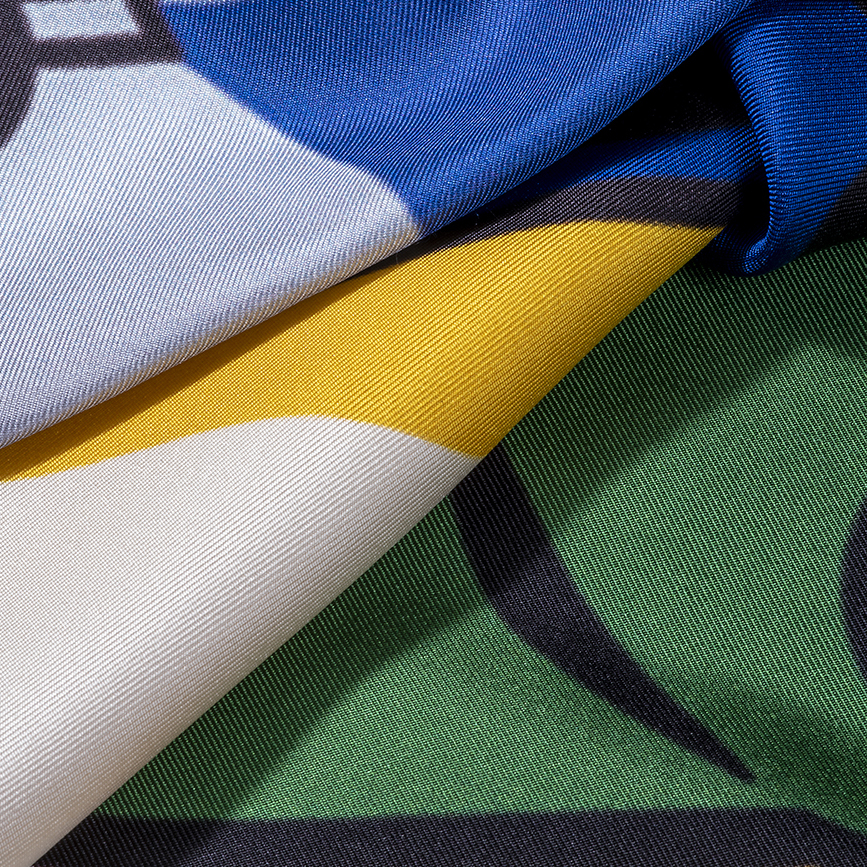
Silk
Silk is a natural material of animal origin. It is a soft and light textile fibre made from the cocoons of the Bombyx mori, also known as the silk moth. Silk is currently mainly produced in Asia, where 90% of global production is concentrated. China is also the world’s leading supplier of raw silk.
There are several processes to get the natural animal material that is silk. Some farms produce natural wild silk, a production method that can be considered more responsible. Cocoons are harvested in forests to extract the silk, which means that there is no breeding. This method of production contrasts with traditional silk farming, which starts from breeding the insects and continues until the textile fibres are produced.
Silk is now used in many clothes, including scarves, shirts, blouses, dresses, and more. It can be found pure or mixed with other textile materials.
Pros
Silk is a highly resistant natural material, prized for its lightness and low thermal conduction. Silk is the most solid natural fibre known and is highly absorbent (it easily absorbs dyes, in particular).
Silk is like a second skin – it contributes to the body’s thermal regulation by regulating its heat. The fabric is very soft and pleasant to wear, providing insulation in both winter and summer.
Silk is a precious natural fabric that is biodegradable and renewable. It is a material that does not change when washed and survives very well over time. Silk is also a hygienic and hypoallergenic fibre.
Cons
Silk farming is still a form of farming and, like any other farm, can involve pesticides and fertilisers that are harmful to the environment. Responsible production methods do exist, in particular by feeding silkworms exclusively with mulberry leaves and by avoiding products that damage the ecosystem. In addition, extracting the silk fibres requires large quantities of hot water. The impact of this farming on the environment is therefore not insignificant, even if there are certified organic silk sectors.
An ethical problem remains though, as the silkworms are often killed. Since ethical production (harvesting the silk threads after the cocoon has hatched) represents only a small percentage of total production, the majority of silkworms are still boiled.
We can make your next standard silk items, but above all we could try to make them with organic silk to limit your environmental impact. Please do not hesitate to contact us so that we can talk about it in person.


